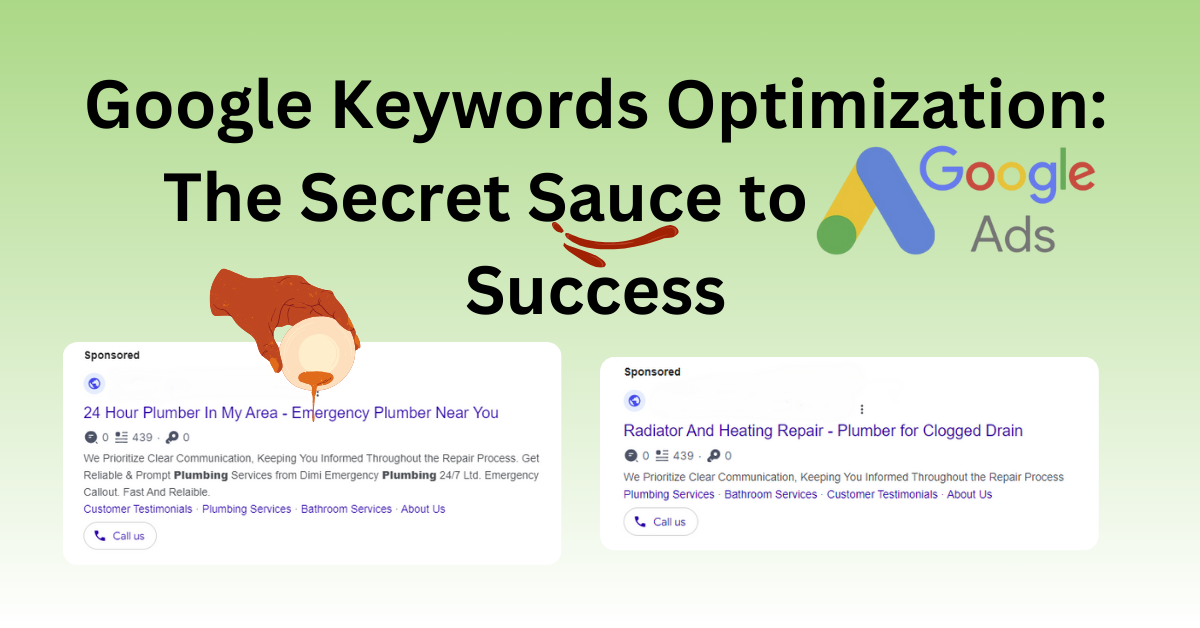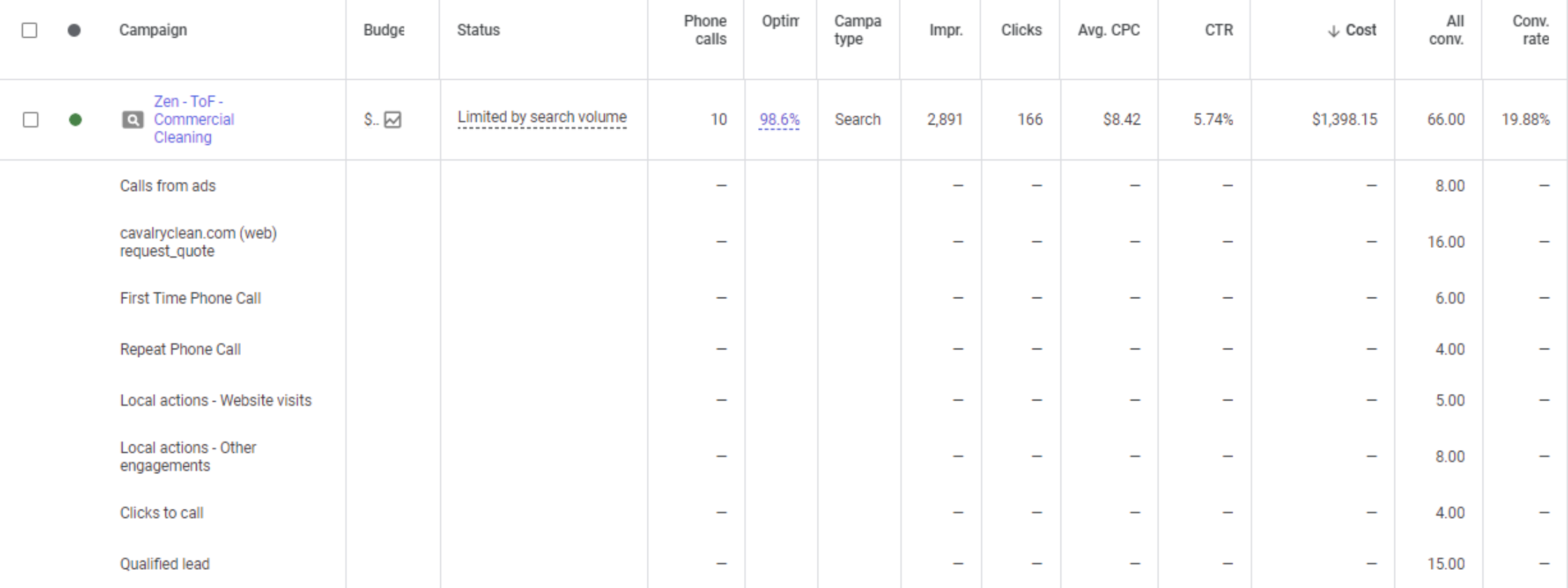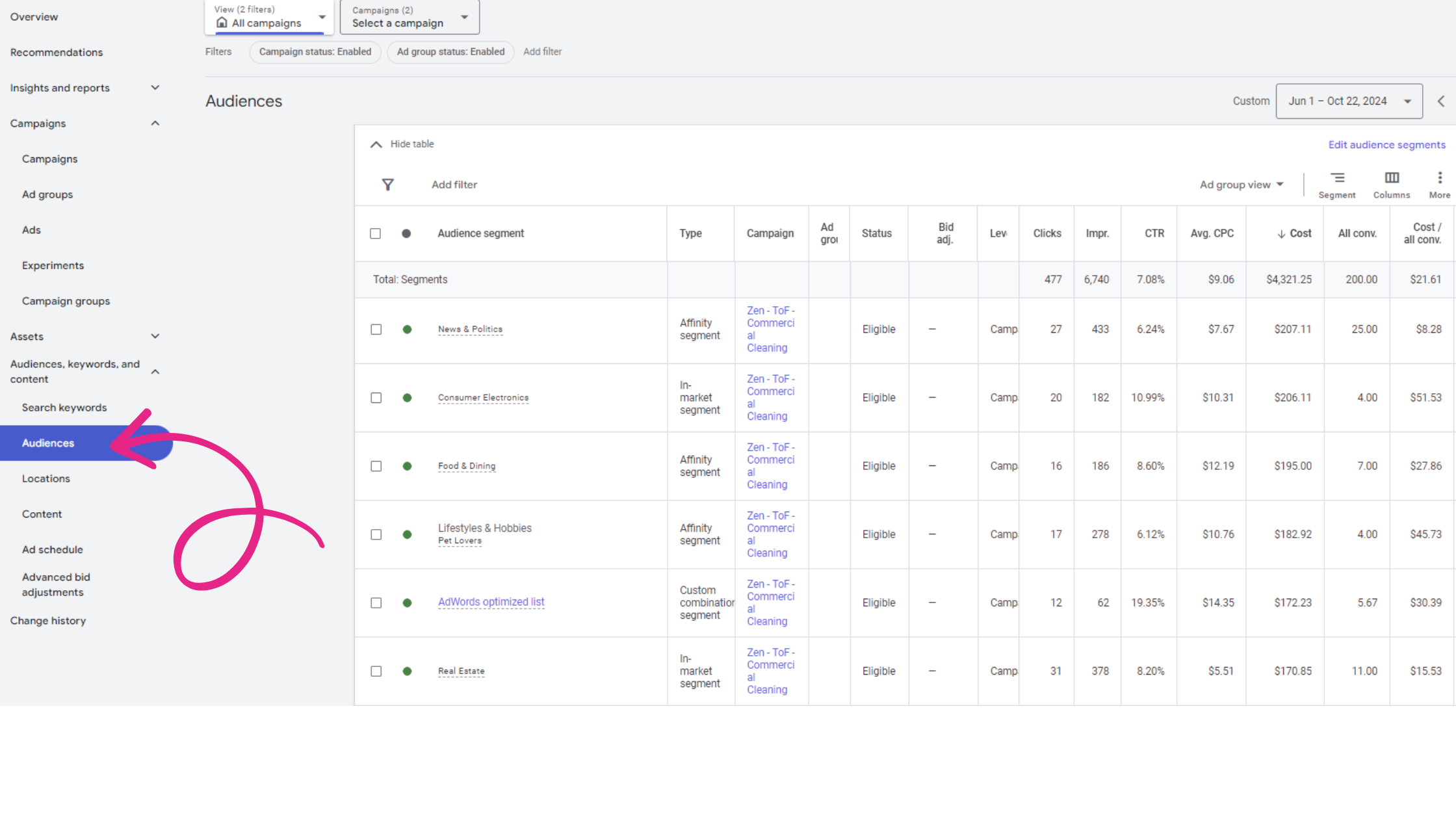
Post published: October 22, 2024 1:30 pm
Author: Iuliia Emets
Total views: 1,649
Reading time: 8.9 min
In this article
Keywords are the backbone of any successful Google Ads campaign. They connect you with your audience and make sure your ads show up when people are looking for exactly what you’ve got. But how do you make sure you’re picking the best keywords? In this blog post, we’ll explore practical, fun ways to optimize Google keywords so you can run campaigns that bring in more clicks, conversions, and smiles. And maybe even a few laughs along the way!
Understanding Keyword Research
The first step in Google keyword optimization is keyword research—sounds fancy, but it’s really just about finding the words your potential customers are using. Think of it like playing detective, but without the trench coat. A good keyword research tool, like Google Keyword Planner, helps you spot those golden keywords by analyzing search results, search volume, competition, and cost-per-click. Start by making a list of keywords related to your product or service that can help improve your search campaigns. And don’t forget those long-tail keywords—they’re like the secret handshake to getting noticed. Instead of just “cleaning services”, how about “affordable office cleaning services in NYC“? Try something like “janitorial services for schools in Boston” or “emergency plumbing repair in downtown Chicago”. These long-tail keywords help target specific needs and locations, making your ads more likely to reach people who are ready to take action.
Don’t forget that Google Keyword Planner isn’t the only game in town. Tools like Ahrefs and SEMrush can also help you find keyword ideas, analyze competitors, and discover keyword difficulty. These tools give you a different perspective, helping you refine your keyword strategy even further. They might even help you spot keywords you hadn’t thought of yet!
Discover Keyword Ideas with Google Keyword Planner
Google Keyword Planner is like a treasure map for keywords. It gives you ideas and shows you how often people are searching for them. This tool also helps you analyze search queries, giving you deeper insights into how users are interacting with search engines. It’s like being a pirate—but instead of gold coins, you’re finding keywords that can make your ads sparkle. Arrr, matey!
Use Negative Keywords to Boost Campaign Performance
Negative keywords are your secret weapon for keeping your ads relevant. They make sure your ads don’t show up for searches that don’t fit your product or service. By refining your list of keywords, you can better control where your ads appear in Google search. If you’re selling luxury products, for example, you probably don’t want people looking for “cheap” options to see your ad—so add “cheap” as a negative keyword. It saves your budget for the folks who are really interested. It’s like putting up a “No Entry” sign for the people who aren’t going to buy anyway.
Analyzing Search Terms Report
Google Ads gives you a search terms report that shows you exactly what people typed in when they saw your ad. This report is a fantastic tool for understanding search queries and optimizing your list of keywords to match what your audience is really searching for. It’s like peeking into your audience’s mind—kind of like reading someone’s diary, but without the guilt. Use this report to understand user behavior better and spot opportunities to add more keywords or negative keywords. If you see certain keywords converting like crazy, double down on those. After all, if it ain’t broke, why fix it?
Optimizing Match Types for Keyword Control
Match types are how you tell Google how closely someone’s search has to match your keywords before your ad shows up. The right match type helps your ads show up in relevant Google search results, making your search campaigns more effective. Broad match gives you a big audience, but it might be a little too broad sometimes—like casting a net that catches everything, including an old boot. Phrase and exact matches are great for more control. Use the right mix to find that sweet spot between reaching lots of people and making sure they’re the right people. Because nobody wants to pay for clicks from someone looking for something totally unrelated.
| Match Type | Keyword Example | User Search Query | Ad Triggered? |
|---|---|---|---|
| Broad Match | plumber services | best plumber near me | Yes |
| Phrase Match | “plumber services” | affordable plumber services | Yes |
| Exact Match | [emergency plumber] | emergency plumber | Yes |
| Broad Match | janitorial services | cleaning company reviews | Yes |
| Phrase Match | “office janitorial services” | janitorial services for offices | Yes |
| Phrase Match | “plumber services” | affordable plumbing near me | No |
| Exact Match | [office cleaning] | office cleaning services nearby | No |
Focus on Long-Tail Keywords
Sure, high-volume keywords sound great, but they’re super competitive. Long-tail keywords—those longer, more specific search phrases—are often a better bet. These specific keywords help you target niche search queries, improving your chances of appearing in relevant search results. They might not get as many searches, but the people using them usually know what they want and are ready to act. It’s like comparing someone window shopping to someone marching into the store with a credit card in hand. You want the latter, trust me.
For example, if you’re a janitorial service, instead of just “cleaning services”, you could use something like “office janitorial services in Los Angeles”. Or, if you’re a plumber, instead of “plumbing services”, try “24-hour emergency plumber in San Francisco.” These specific phrases help you stand out to people who need your services right now.
Create Relevant Ad Groups and Landing Pages
Make sure your ad groups are tightly themed around similar keywords. This makes it easier to create ads that are super relevant to what people are looking for. And don’t forget about the landing pages! When someone clicks on your ad, they should end up on a page that feels like it’s exactly what they were searching for. It makes people happy and boosts your ad quality score. Think of it like a first date—you don’t want to disappoint when someone shows up with high expectations!
Keeping Your Google Ads Account Well Organized
Think of your Google Ads account like your closet—it’s so much better when it’s organized. Regularly review your keywords, ad groups, and campaigns. Make changes based on what’s working and what’s not. Pause underperforming keywords, add new ones from the search terms report, and keep everything tidy. It makes future optimizations way easier! Plus, you don’t want to be that person with a chaotic closet where everything falls on you when you open the door.
Measuring Success with Key Metrics
Google Ads has lots of metrics to help you see how you’re doing—like Click-Through Rate (CTR), Conversion Rate, and Quality Score. The higher your Quality Score, the happier Google is with your ads, keywords, and landing pages. It’s kind of like getting a thumbs-up from Google. Focus on boosting that score by keeping everything aligned: keywords, ads, and landing pages that all make sense together. The more aligned they are, the more you’ll hear Google say, “You’re doing great, sweetie”!

Common Keyword Optimization Mistakes to Avoid
Broad match keywords are no longer necessarily a mistake. I’ve seen how they could work well for some of my clients’ accounts. However, it’s still better not to use broad match keywords from the start. Instead, focus on collecting a wide list of keywords to avoid showing ads for irrelevant searches. Plus, broad match can work great if you implement enhanced conversions, helping to refine your targeting over time and drive better results. Another mistake is not updating your negative keywords list regularly. Without pruning it, you might end up showing ads for irrelevant searches, wasting your budget. Stay vigilant and keep learning from your campaigns!
Experimenting with New Ideas
Don’t be afraid to get creative with your keywords and campaigns! Try new keyword variations, test different match types, or experiment with ad copy to see what works best. Digital marketing is all about trying new things and learning from the results. Sure, not every experiment will be a home run, but sometimes you’ll find a combination that really clicks. Think of it like cooking—you’ve got to try different ingredients to find the perfect recipe.
Here’s a real-life scenario: Let’s say you’re running a campaign for a plumbing business. Initially, you use broad keywords like “plumbing services”. The clicks are coming in, but conversions are low. After analyzing the search terms report, you decide to switch to long-tail keywords like “emergency plumbing repair in downtown Chicago”. Suddenly, the people clicking on your ads are the ones who need help immediately—and your conversion rate skyrockets. Sometimes, specificity is the key to better performance.
Leveraging Audience Insights for Better Keywords
Another great way to optimize your keywords is to use audience insights. Who exactly is clicking on your ads? What are their interests? What devices are they using? Google Ads provides a lot of information about your audience, and understanding these details can help you tailor your keywords even more precisely. For instance, if most of your clicks are coming from mobile users, you might want to target keywords that reflect on-the-go searches. It’s like being a mind reader—but less creepy.

Using Ad Extensions for Extra Visibility
Ad extensions are a great way to make your ads stand out and give users more reasons to click. You can add links to specific pages, show your phone number, or highlight key benefits of your product or service. Not only do ad extensions provide more information to potential customers, but they also improve your ad’s visibility and click-through rate. It’s like giving your ad a shiny new accessory—it just makes it more appealing.
Conclusion
Google keywords optimization is all about research, tweaking, and staying flexible. Use tools like Google Keyword Planner, add negative keywords, get the right match types, and focus on those long-tail keywords to boost your campaigns. Keep optimizing, stay consistent, and adapt as you go—you’ll be seeing great results in no time. And hey, if you can have a little fun along the way, why not?
Ready to take your Google Ads campaigns to the next level? At Zen Republic Digital Agency, we specialize in getting you the best ROI while keeping things fun and effective. Contact us today to learn more about our tailored marketing solutions!


